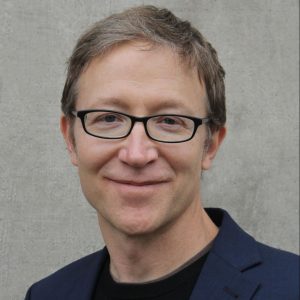 By Emily Knepple
By Emily Knepple
Lucas Graves, an associate professor in the School of Journalism and Mass Communication, is a 2021 recipient of the Vilas Associates Award. This award is given out by the Office of the Vice Chancellor for Research and Graduate Education and “recognizes new and ongoing research of the highest quality and significance.”
Funded by the William F. Vilas Estate Trust, recipients are judged on the basis of a detailed proposal. Graves’ research focuses on news and politics and specifically political fact-checking.
“I mainly study the way that news organizations are changing in a digital media world and in particular, a lot of my research up to now has focused on the rise of fact-checking outlets in the United States,” said Graves.
With the grant, winners are awarded with up to two-ninths of research salary support for both summers 2021 and 2022, as well as a $12,500 ‘flexible research fund in each of the two fiscal years.’
Graves plans on looking specifically at the code of principles that fact-checkers have developed “to make sure they’re all using the best methods.” Amid a surge in the United States throughout the past decade and previous presidential elections, fact-checking groups have continued to diversify rapidly.
Over time, the fact-checking movement has become more global and different types of groups exist internationally. Graves shares that some groups are based more in the traditional newsroom, while others are independent or exist at universities.
Graves is one of 23 faculty members at UW-Madison to receive the award. Other recipients span departments such as English, botany and mathematics.
“One of the great things about working at UW-Madison is that there is so much support internally for our research and this kind of grant is so crucial when you’re launching a new project,” Graves said.
Awards like the Vilas Associates Competition give academics a chance to balance their own important research while also creating engaging curriculum and supporting students.
“Grants like this and the fall research competition really make it a supportive climate for academics who are sort of early in the careers or later on but are trying to turn in a new direction to launch a new product,” Graves said.
Graves, who has been with the J-School since 2012, is eager and excited about the possibility of more extensive research due to the funding. As more fact-checking organizations continue to pop up, those studying the role of news in a digital age must continue to ask questions and use available resources.